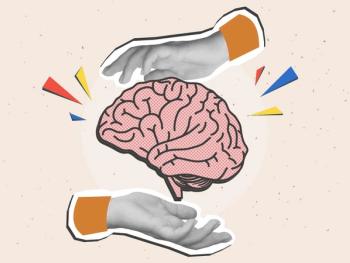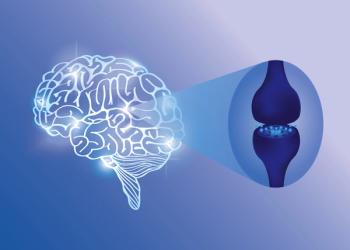
Distractions of Life at Crux of Perimenopausal Memory Complaints
Memory, Perimenopause
Although perimenopausal women often report that they are experiencing memory loss and seek medical attention for cognitive decline, recent studies show that, rather than memory dysfunction, these women may be experiencing stress-related problems that compromise their ability to pay attention. The contention, according to the most recent research reported in Boston this past February at the annual meeting of the International Neuropsychological Society, is that multitasking and interpersonal stressors pull perimenopausal women in so many directions that they fail to form memories of those instructions and incidents that they later claim to have forgotten. They haven't lost a memory-their minds did not adequately record it because, when they had the opportunity, their attention was elsewhere.This puts a spin on common ideas about perimenopause, the perception of menopause, and memory. The findings also suggest that social stressors may be significant for women at this stage of life and, heretofore, may not have been given due recognition.Unexpected FindingsA landmark longitudinal study published in Neurology in 2003 and authored by a team led by Peter M. Meyer, PhD, director of the Section of Biostatistics, Department of Preventive Medicine at Rush-Presbyterian-St. Luke's Medical Center in Chicago, demonstrated that perimenopause was not associated with memory decline.1 The finding was contrary to the study's original hypothesis that the "progression through the menopausal transition" would be "associated with a decline in cognitive performance, after adjustment for baseline age, education level, family income, ethnicity, and baseline self-perceived health." Indeed, a trend toward improvement over time in perceptual speed and working memory was noted-although the authors conceded that this might have been attributed to "a learning effect."The participants were evaluated annually over the course of 5 years. The study results were based on data from 803 premenopausal and early perimenopausal women between the ages of 42 and 52 years.The more recent, smaller study, reported at the annual meeting of the International Neuropsychological Society by Miriam Weber, PhD, senior instructor in neurology, and Mark Mapstone, PhD, assistant professor of neurology, at the University of Rochester Medical Center in New York, found that perimenopausal women complaining of forgetfulness and possible cognitive decline were not forgetful. Rather, they were not adequately "encoding" information for later memory recall, possibly because life stressors had proverbially driven them to distraction. The earlier study by Meyer and colleagues briefly touched on this factor in its conclusion, citing earlier studies suggesting that mood, stress, and lifestyle habits might contribute to the cognitive changes that are noted during perimenopause.The study by Weber and Mapstone included 24 perimenopausal women between the ages of 40 and 60. Compared with the study by Meyer and colleagues, the smaller study by Weber and Mapstone used a broader number of cognitive tests that were administered between days 4 and 7 of the menstrual cycle. Blood estrogen levels also were measured. Although none of the women met clinical criteria for a mood disorder, the overwhelming majority-22 (92%) of the women-reported some degree of memory decline. The diagnosis of memory impairment was made in only 1 patient in the cohort.The research team found a significant association between memory complaints and the ability to encode and use new verbal information and between memory complaints and symptoms of anxiety and depression. Although lower estrogen levels correlated with anxiety symptoms, lower estrogen levels did not correlate with memory performance or subjective memory complaints.Stress Linked To Memory Complaints"What characterizes these women is that they're being pulled in a lot of different directions. Many work. They have careers, aging parents, children, and they're also going through this dramatic hormonal change," said Weber in a statement to the press about the study results. "Our interest in doing the study came about because we were hearing a lot of anecdotal complaints about memory loss from perimenopausal women. We sought to verify subjective reports about memory through objective testing," she explained in an interview with Applied Neurology. "Did the women in our study actually have memory deficits? This, we did not find. We did find that the women in the study had a number of symptoms associated with depression and anxiety, although no woman had a formal mood disorder," she said."The women who had a greater degree of memory problems tended to have more symptoms of mood or anxiety. We can't tease out if there is a causal relationship. What we're saying is that there seems to be a relationship between these components and the subjective experience of memory complaints," added Mapstone. The team observed an association between shifts in estrogen levels, mood symptoms, and complaints of memory problems. "The literature suggests that, at times of hormonal fluctuation, there's an increase in mood symptoms. In our study, we found a relationship between lower levels of estrogen and increased mood symptoms and then a relationship between increased mood symptoms and increased complaints about memory problems and decreased ability to encode new information," Weber explained."We speculate it could be causal, but didn't establish this," Mapstone added. He stressed that their study was small-inclusive of 24 perimenopausal women. "If you link the pieces together, you could tell a very compelling story, but our study did not establish those links; it merely set up the interrelationships. The next step for us, or others in this field, may be to take a look at the causal relationships between estrogen and hormone levels, mood, and the impact on actual cognitive function and the subjective experience that women have," he said.How should neurologists and primary care physicians address perimenopausal patients who present with memory complaints and fear that they are experiencing early signs of a cognitive disorder? Assuming that cognitive dysfunction has been ruled out during the clinical examination, Weber and Mapstone recommend that the patient be assured that it is common for perimenopausal women to complain of memory problems but that research suggests that the symptoms are most likely not related to dementia. "You don't want to brush off the concerns of these women. It's a cause of great frustration," commented Weber. She added that mood disorder screening might be the appropriate next step and that the patient should be monitored over time.When asked how clinicians should approach patients who might be self-medicating with memory-enhancing supplements to ameliorate their perceived symptoms, Mapstone commented that neurologists and primary care physicians should leave off making recommendations about use of various supplements, such as ginkgo biloba, and instead should encourage patients to proactively look into stress-reduction strategies and lifestyle modification."This is a small study. We need to be cautious with interpretations, particularly in regard to external validity and applications to the general population. Results hint at a nice, logical story, but that needs to be followed up with much more research," Mapstone concluded.The team is planning a pilot study to further explore the issue. "It would be ideal to follow women just as they're entering perimenopause until they hit menopause to see whether a decline in cognition occurs over time and, if it does, what might be the cause," said Weber. "In addition, such a study should follow individual women through serial testing," Mapstone added.REFERENCE1. Meyer PM, Powell LH, Wilson RS, et al. A population-based longitudinal study of cognitive functioning in the menopausal transition. Neurology. 2003;61:801-806.
Newsletter
Receive trusted psychiatric news, expert analysis, and clinical insights — subscribe today to support your practice and your patients.






